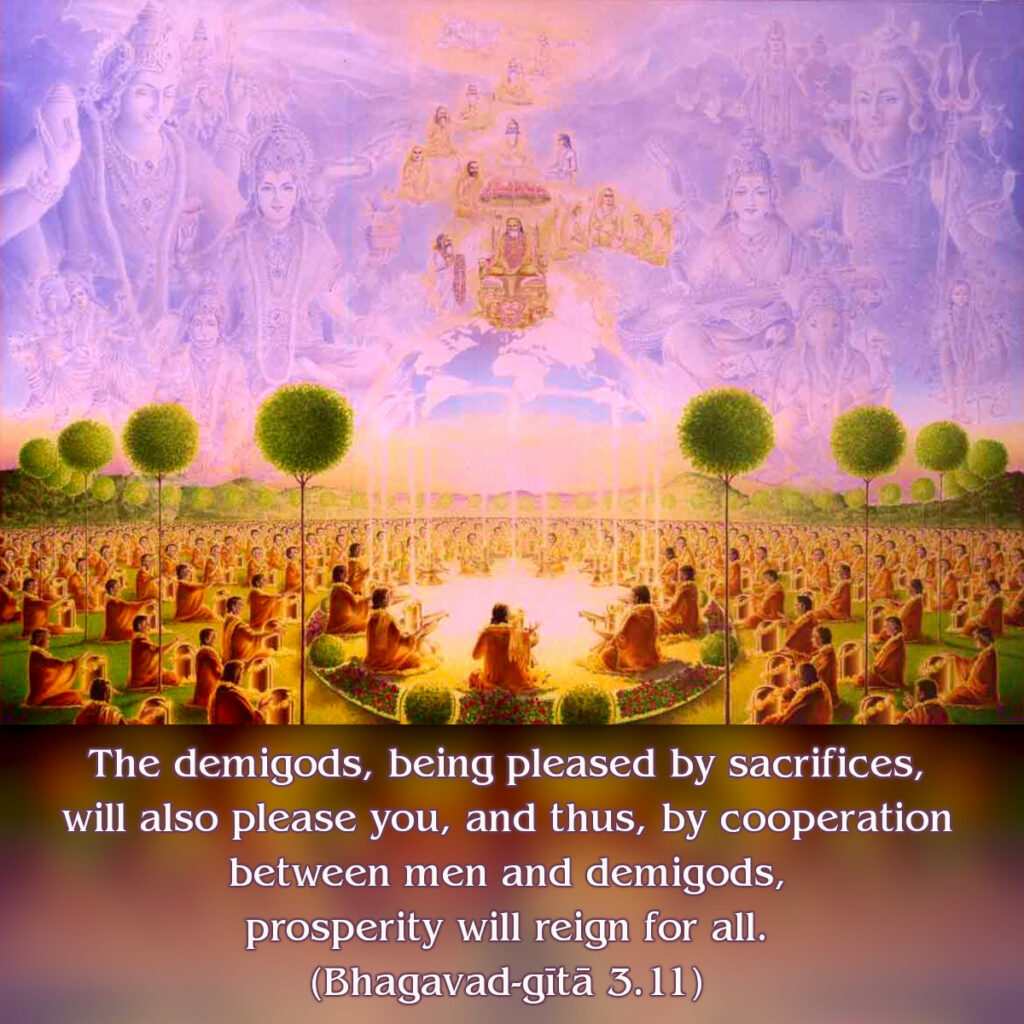देवान्भावयतानेन ते देवा भावयन्तु व: |
परस्परं भावयन्त: श्रेय: परमवाप्स्यथ || 11||
devān bhāvayatānena te devā bhāvayantu vaḥ
parasparaṁ bhāvayantaḥ śhreyaḥ param avāpsyatha
devān—celestial gods; bhāvayatā—will be pleased; anena—by these (sacrifices); te—those; devāḥ—celestial gods; bhāvayantu—will be pleased; vaḥ—you; parasparam—one another; bhāvayantaḥ—pleasing one another; śhreyaḥ—prosperity; param—the supreme; avāpsyatha—shall achieve
Translation:
Nourish the Gods with Yajna, and they shall nourish you, and thus nourishing one another both men and Gods you shall attain the highest good.
Commentary:
It is the Supreme Lord who appears in the form of different Gods (shining ones) embodying the multifarious powers of the One, ruler of the Universe. So whom-so-ever one worships, without desiring for any material benefits, he is liberated by the mercy of the Supreme Being.
Highest good: In the world, there are many things good and enjoyable, like wealth, children, popularity, prosperity, etc. Of all these, the highest good, namely liberation, is attained by the worship of the Supreme Being, by the worship of the Truth which is covered up the inscrutable power of Maya. Man’s effort and God’s grace are both necessary for liberation.
Even in the common affairs of life, the man who links himself with the Lord finds protection from dangers in the daily turmoil of life and obtains all-around prosperity. Better it is to depend on the Lord than on ordinary mortals who are subject to all the ills of life. They may help or not help according to their self-interest. In any way, such contact with mortal benefactors comes to an end with death. The contact with the Lord continues forever and if man’s devotion is intense enough, he is liberated even in this birth.
Bhagavad Gita: Chapter 3 🔻 (43 Verses)
Question: How can man attain the highest good?
Answer: Man attains the highest good by the desireless performance of yajna.
